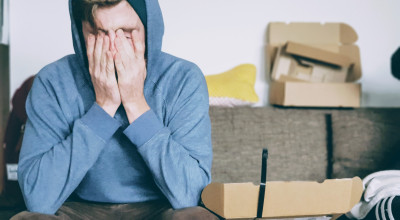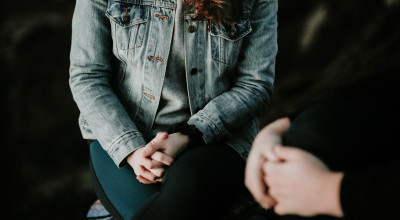Sleep, Addiction, and Mental Health
February 13th, 2023
By P. Casey Arrillaga, LCSW, LCDC
It will come as no surprise that addiction and other mental health disorders can have a pretty bad effect on sleep, but what about the other way around? Do the pattern and quality of your sleep impact addiction and mental health? In short, yes. In fact, sleep, addiction, and mental health all influence each other in multiple ways, some of which are pretty straightforward and others that are more complex.
To start, let’s look at the importance of sleep. In his book “Why We Sleep”, sleep researcher Matthew Walker, PhD lays out a case for how vital the time we spend sleeping is for our mental health, memory, and overall wellbeing. He notes that the idea of “making up for lost sleep” is a myth, that we ask adolescents to be awake and in school at all the wrong times, and that most people in our society are not taking sleep as seriously as they should, often treating it as a nuisance rather than a life-giving and mind-refreshing time.
If this applies for the average person, how much worse is it for someone who is suffering from addiction or any other mental health condition? As is turns out, it’s much worse. Studies show that even low doses of alcohol have a strong negative effect on sleep quality. For instance, the people drinking even light amounts of alcohol spend less time in REM sleep, which turns out to be vital for memory, and sleep more lightly, meaning their sleep is more likely to be interrupted by any disturbance in their environment. It’s not only their sleep that suffers, however. The same research shows that such people are then significantly sleepier during the next day, which can be life-threatening if they are in a safety-sensitive job or even just get behind the wheel of a car. Unsurprisingly, all these effects are made worse when people drink heavily, which is to be expected for anyone with an addiction, and all too often the case for those who suffer from any other mental health condition.
Other drugs of abuse don’t fare much better. While low doses of THC may be used to help with sleep apnea, most addicted people use in much higher doses, which have been shown to disrupt sleep patterns in unhealthy ways. Opiates similarly disrupt healthy sleep and tend to leave people feeling like they haven’t gotten enough rest. As you might imagine, stimulants such as cocaine and especially methamphetamine are well-known for destroying sleep patterns, with methamphetamine users often staying up for days without any sleep at all, something known to create or exacerbate any number of mental health issues.
To make things worse, researchers have found the drug use and sleep issues feed one another. For instance, opiate users suffer from insomnia as a result of the routine withdrawal effects of the drug, and then are more likely to relapse because they are tired. This puts them into a cycle of using the drug, going into withdrawal, not getting enough sleep as a result, and then being more likely to use again because the lack of sleep lowers their mental defenses that might otherwise help them make a decision to resist relapse. Users of other drugs may find themselves in a similar bind.
While people with mental health issues are more likely to abuse alcohol and other drugs, even without such use, they are vulnerable to having sleep issues that put them into a similar downward spiral. Depression and anxiety are both strongly associated with sleep issues. As with example of opiate use detailed above, feeling anxious tends to lead to insomnia, and then the lack of sleep makes the person more vulnerable to anxiety. Depression can lead to similar results even though it is sometimes associated with getting too much sleep. As anyone with depression might already know, even getting a lot of sleep does not usually lead to them feeling refreshed. People with more acute mental health issues like schizophrenia or PTSD typically suffer from sleep issues of all kinds. For people with schizophrenia, these sleep issues often show up before any of the other typical symptoms. For this reason, the sleep disturbances don’t seem to be solely the result of the potent medications used to treat schizophrenia, although these certainly don’t help.
Given all of this, what can be done? For anyone abusing alcohol and other drugs, whether they have other mental health issues or not, stopping the drug use is the first priority. Without this, not much else is going to happen. Depending on the severity of use and what types of drugs are involved, medically supervised detox and residential treatment may be required. During the first stage of this process, the sleep issues will probably get worse before they get better, but then sleep typically improves. While the worsening sleep may tempt the person to return to drug use, it is supremely important to avoid this, which is why a medically-supervised setting is usually the best way to go.
Once this is done, or if it is not an issue at all, then positive steps to improve sleep are the next priority. Seeking help with addiction recovery and/or mental health can also be much better than trying to go it alone. Support groups such as Alcoholics Anonymous, SMART Recovery, and the National Alliance on Mental Illness [NAMI] all offer meetings to help alleviate addiction and other mental health issues. Individual and group psychotherapy have been shown to help significantly with sleep issues. Studies show that even for people with severe mental health issues, exercise is of significant benefit for improving sleep, as is keeping a regular sleep schedule. While there is some disagreement about whether sleep medications are a good idea, many people turn to them to help overcome the insomnia that so typically accompanies quitting alcohol and other drug use.
Exploring these options and finding the right combination for you can get you off the downward spiral of addiction, mental health issues, and sleep disturbance, and onto an upward spiral of sobriety, better mental health, and a good night’s sleep.
About The Author
P. Casey Arrillaga is the Team Leader for Education at Windmill Wellness Ranch, and he is the author of books including “Realistic Hope: The Family Survival Guide for Facing Alcoholism and Other Addictions”. His books, podcast, videos, etc. can be found at CaseyAuthor.com


